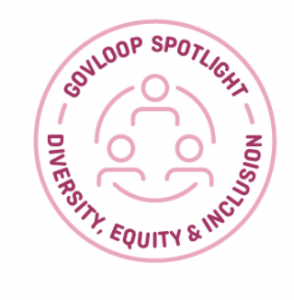 What is an Ally?
What is an Ally?
Ally. You’ve probably heard the term used before in different contexts. When I was growing up, I remember Batman’s No. 1 ally was Robin, a vigilante who was his partner in crime.
According to Webster’s New World Dictionary of the American Language, an ally is someone “joined with another for a common purpose.”
In the context of diversity, equity and inclusion (DE&I), an ally is an agent of change. It is someone who advocates and speaks up for underrepresented or marginalized groups inside and outside of the workplace.
At the Intersection of Allyship and DE&I
Research tells us that women make up nearly 50% of the workforce, but only 16% of the board seats at the 500 largest companies in the U.S. We also know that the wage gap between men and women and people of color is a perpetual problem that needs serious attention. The act of allyship is the cornerstone to effective diversity and inclusion practices for many organizations.
Why Do We Need Allies?
Invisibility, disrespect and exclusion are challenges that women, people of color, the LGBTQ community and individuals with disabilities frequently encounter at work. Allies know how to create safe spaces for those who feel invisible at work as a result of historical policies and practices that have discounted them.
Unlike Batman and Robin, allyship is not a superhero adventure. Being an ally is daring leadership. It takes awareness, intentionality, courage and commitment. The essential act of allyship is fighting for a cause greater than oneself and not for oneself alone. It’s no small feat!
What Does It Take to Be An Ally?
To be an ally is not a self-centered or self-serving duty. Most people are unaware of what true allyship looks like or how to practice it in a meaningful way.
Allyship is a verb and requires action. Being an ally is about solidarity and social justice for marginalized people. It’s also about disrupting and changing systems that have historically disempowered them.
How to Become An Ally at Work
If you’ve never had to speak truth to power, using your voice to uplift or to confront may feel foreign or even downright unnerving. Get to know your position, power and privilege within deeply entrenched systems of oppression.
But that’s only half the battle. Learn as much you can about the history and experiences of the group you wish to ally with. Also, form genuine partnerships with them by focusing on building trust and increasing their visibility.
The How-To of True Allyship
The Oregon Coalition Against Domestic Violence created a Working Definition of Allyship that lists practices to follow. Here are a few that resonate with me:
- Respect lived experience. The experts on any form of oppression are the people most directly affected by it.
- Provide unconditional solidarity.
- Get ready to make mistakes, because you will.
- Stand beside, not in front of.
- Don’t assume your presence or opinion is desired or necessary. You are not entitled to space in the community you mean to ally with.
- Provide the forms of support you’re asked for, rather than the forms of support you imagine would be helpful.
- Don’t treat the group you mean to ally with as homogenous.
- Don’t try to speak for people in the group you mean to ally with. Instead, help boost the visibility of their own work.
Are You Ready to Become An Ally?
Allyship can be tough, yet rewarding. However, the victory that comes from seeing real change is not yours alone. It is for those you have chosen to champion.
If you’re serious about becoming an ally, I highly encourage you to dive deeper by examining your intentions, expectations and understanding of what real allyship looks like. Here are some tools to help you in your journey:
- Take a course in allyship. The Stanford Graduate School of Business’ offers this free, self-paced program: Anti-Racism and Allyship 7 Day Journey . Share what you’ve learned with colleagues at work.
- Read the Guide to Allyship to learn tips and strategies.
- Check out 50 Ways to Fight Bias, a free digital program that empowers employees to identify and challenge bias head on.
Interested in becoming a Featured Contributor? Email topics you’re interested in covering for GovLoop to [email protected]. And to read more from our summer/fall 2021 Cohort, here is a full list of every Featured Contributor during this cohort and a link to their stories.
Kima Tozay is a Licensed Clinical Social Worker and subject matter expert on Counseling and Advocacy programs in her role at Navy Fleet & Family Support Center, Everett, Washington. Her government career spans 15 years, starting in the Navy. Kima completed her Masters in Social Work degree from the University of Washington and has held positions with the Veterans Affairs Department (VA) and the Army. Kima’s greatest career accomplishment is receiving the Federal Employee of the Quarter Award for her leadership during the COVID-19 pandemic. She earned an Executive Leadership Certificate from Graduate School, USA. You can connect with Kima on LinkedIn.






Leave a Reply
You must be logged in to post a comment.